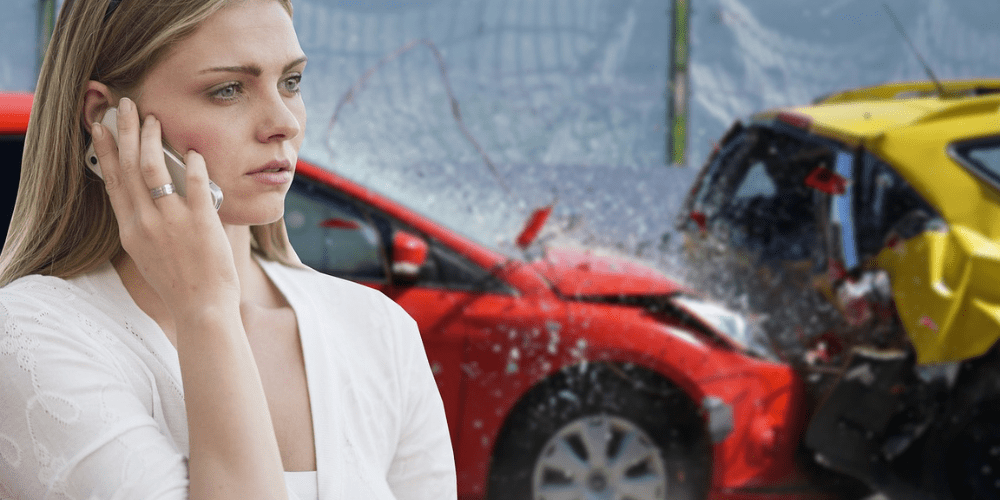
The healing process can be challenging after a car crash. Understanding auto injury types and their expected recovery timelines can help.
Auto accidents can produce a wide range of injuries, each with varying recovery timelines. This guide explores common injury types, expected healing ranges, and factors influencing individual recovery journeys.
Auto accidents are common. Millions occur each year, and unfortunately, many of them result in severe injuries. While it's important to feel gratitude after surviving a car accident, you shouldn't push aside the trauma that involvement in a crash causes. Taking the time needed to recover following a car accident, making informed decisions about recovery, and managing your expectations are essential.
Car accidents can trigger a wide variety of injuries. This is especially true for accidents at higher speeds or involving reckless driving. Categories of injuries include:
Soft tissue injuries include strains, sprains, and contusions. They're called soft tissue injuries because they affect muscles, tendons, ligaments, and the body's soft tissue.
Symptoms of these injuries may include:
Mild soft tissue injuries often heal within a few days to a few weeks with rest, ice, compression, and elevation (RICE). Moderate injuries may require more intensive treatment, such as physical therapy, immobilization with a brace or splint, and prescription pain medication.
Severe soft tissue injuries may necessitate surgical intervention to repair or reconstruct damaged tissues and may have longer healing times, ranging from weeks to months. Soft tissue injuries can lead to secondary health issues, so seeking medical attention is important.
Bone fractures are classified into two main categories: simple and complex. Simple fractures involve a clean break in the bone without significant damage to surrounding tissues, while complex fractures may involve multiple breaks, displacement of bone fragments, or injury to nearby blood vessels and nerves.
Fractures most often affect:
Treatment for bone fractures realigns the bone fragments, provides stability, and promotes healing. The expected healing time for common fractures varies depending on factors such as:
Head and neck injuries encompass a range of conditions, including whiplash, concussion, and traumatic brain injury (TBI), each varying in severity and potential long-term effects.
Whiplash is a common neck injury often resulting from a sudden backward and forward movement of the head, commonly experienced in car accidents. Symptoms may include:
Most cases resolve within a few weeks with rest and physical therapy, but some people experience chronic pain and long-term complications.
A concussion is a mild traumatic brain injury caused by a blow or jolt to the head. Symptoms may include:
Usually, concussions resolve within days to weeks with rest and symptom management. However, experiencing multiple concussions over time can lead to long-term cognitive and neurological impairments.
Traumatic brain injury (TBI) is a more severe head injury resulting from a significant blow or penetrating injury to the head. Symptoms range from mild (headache, confusion) to severe (loss of consciousness and memory).
Long-term effects of TBI can include:
Early diagnosis and appropriate management are crucial for minimizing long-term complications associated with head and neck injuries.
Spinal cord injuries (SCIs) are one of the most severe types of car accident injuries. They occur when there is damage to the spinal cord, resulting in loss of function and sensation below the level of injury.
Treatment aims to stabilize the spine, prevent further damage, and maximize recovery. In cases of severe SCIs, emergency medical care may be needed to immobilize the spine and prevent additional injury. Sometimes, surgery is necessary.
You can support long-term recovery from SCIs with:
People involved in car accidents of all severity levels are at risk of psychological trauma. One of the most common occurrences after a car accident is post-traumatic stress disorder (PTSD).
Symptoms of PTSD may include:
Seeking professional help is important if you're dealing with psychological trauma after a car accident. Mental health professionals can provide assessment, diagnosis, and evidence-based treatments such as therapy, medication, and support groups to help you recover.
Several factors affect a person's healing and recovery following an auto accident. These include:
Taking a holistic approach to recovery after a car accident can significantly impact the time it takes to recover, as well as the entire recovery experience.
Physical therapy, rehabilitation, and pain management strategies play crucial roles in the healing process after a car accident injury for several reasons. Benefits include:
Supporting mental and emotional well-being through counseling, support groups, and mindfulness practices after a car accident can significantly improve healing for several reasons. Counseling helps you:
After an accident, social and occupational considerations are important aspects of recovery as they impact an individual's ability to reintegrate into daily life. Following an accident, consider seeking out:
Recovery is an individual process that varies from person to person. This is true even if injuries are similar for two people who have a lot in common. It's important to consult with healthcare professionals who can provide personalized guidance during the healing process. No matter the severity of your injuries, physical or psychological, there is hope after a car accident. Seeking support and accessing helpful resources are two of the best things you can do to help you navigate the recovery journey.

© Accident Care Chiropractic | Hablamos Español
Located in: North Portland, NE Portland, SE Portland, Gresham, Clackamas, Oregon City, Hillsboro, Bethany, Beaverton, Tigard, Forest Grove, Woodburn,
McMinnville, Keizer, Salem, South Salem, Bend, Springfield, Vancouver, Hazel Dell, East Vancouver, Pasco, Kennewick, Lakewood.
We Specialize in Car Accident Treatment & Recovery
Home | About Us | Testimonials | Blog | Sitemap | Privacy Policy | Services | Locations | Contact Us